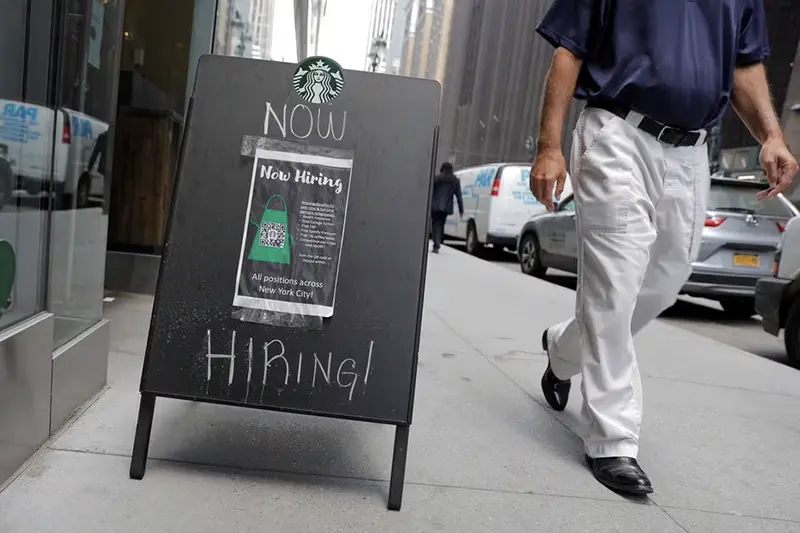February 8, 2024 – 6:44 AM PST

WASHINGTON (Reuters) – The number of Americans filing new claims for unemployment benefits fell slightly more than expected last week, pointing to underlying labor market strength despite a recent surge in announced layoffs, mostly in the technology industry.
The report from the Labor Department on Thursday also showed unemployment rolls shrinking a bit in late January after swelling to a two-month high earlier. Labor market resilience is underpinning the economy and the latest claims readings suggested that the strong economic momentum from the fourth quarter spillover into the new year.
“The basic message from today’s report is not only are there not enough job losses to point to a recession, there are no significant job losses to see at all,” said Christopher Rupkey, chief economist at FWDBONDS in New York.
“The belt-tightening layoffs and cost-cutting talked about in many company earnings reports is not showing up in the weekly unemployment claims statistics.”
Initial claims for state unemployment benefits dropped 9,000 to a seasonally adjusted 218,000 for the week ended Feb. 3. The decline reversed the bulk of the prior week’s increase, which had lifted claims to just over a two-month high.
Economists polled by Reuters had forecast 220,000 claims for the latest week. Claims are little changed compared to the same period last year. Unadjusted claims dropped 31,192 to 232,727 last week amid sharp declines in filings in California, Ohio, Oregon, New York and Pennsylvania. The decreases in these starts partially unwound surges in the week ending Jan. 27.
Applications in Oregon had soared in the prior week, attributed to layoffs in the construction and healthcare and social assistance industries. The jump in New York was blamed on layoffs in the transportation and warehousing, construction as well as healthcare and social assistance industries.
There has been a spat of high-profile planned layoffs, many of them in the technology and media industries.
But employers are generally wary of sending workers home following difficulties finding labor during and after the COVID-19 pandemic. Economists also point to rising worker productivity, marked by growth in excess of a 3% annualized pace for three straight quarters, and easing labor costs as other factors encouraging companies to retain their workforces.
The government reported last week that nonfarm payrolls increased by 353,000 jobs in January. The unemployment rate was unchanged at 3.7%. Sustained labor market strength has forced financial markets to dial back expectations of the first interest rate cut from the Federal Reserve to May from March.
U.S. central bank officials signaled on Wednesday that they were in no rush to lower borrowing costs until they were confident inflation was headed down to the Fed’s 2% target. Since March 2022, the Fed has raised its policy rate by 525 basis points to the current 5.25% to 5.50% range.
The number of people receiving benefits after an initial week of aid, a proxy for hiring, decreased 23,000 to 1.871 million during the week ending Jan. 27, the claims report showed.
Reporting by Lucia Mutikani; Editing by Chizu Nomiyama

